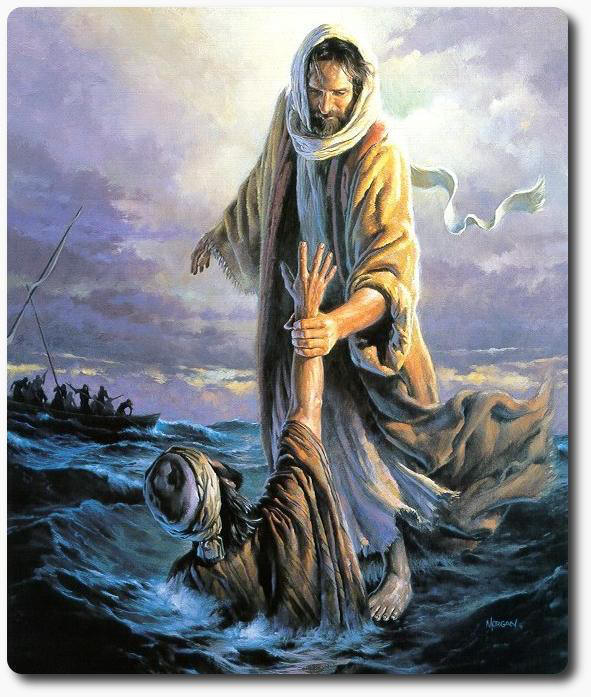8-10 August 2014
Homily of the Apostolic Nuncio
His Grace Archbishop Petar Rajič
1 Kgs 19:9a, 11-13a; Rom 9:1-5; Mt 14:22-33
The two main characters of today’s gospel reading, Jesus and Peter, provide us with clear examples of Jesus’ divine care for humanity and Peter’s human need for the divine.
Jesus is absent at the beginning of the story and the apostles are struggling with strong winds on the sea of Galilee without their Master. It is so often true that the winds of life are contrary to what we would prefer. There are times when we are up against strong winds: with ourselves, with circumstances, temptation, sorrows and decisions we are compelled to make. The difficult circumstances of our lives can be overwhelming and make us even despair at times, making us prone to fear as well. The disciples became even more afraid when they first saw Jesus and thought that he was a ghost! During trying moments we need not struggle alone, for Jesus comes to us to dispel our fears and calm our hearts: Take courage, it is I; do not be afraid, which is a constant reminder to us of God’s faithfulness in his care towards us.
On the other hand we have Peter present in this passage. The entire story shows us Peter’s very human nature and his desire to be close to Christ. Upon seeing Jesus walking on the water, Peter wanted to be sure. Lord, if it is you, command me to come to you on the water. And Jesus invited him to come forth and Peter started out well, but upon observing the waves and the strong wind, he started sinking and then cried out Lord, save me! Jesus did not wait an instant. Immediately Jesus stretched out his hand and caught Peter, and said to him, “O you of little faith, why did you doubt?”
We can easily identify ourselves with Peter, who often acted upon impulse without thinking of what he was doing. Peter started out well and even began to walk upon the water himself, which he was able to do while his gaze was fixed on Jesus and he set out with faith. But once he looked away from the Lord and noticed the waves and the wind, he started doubting, became fearful again, he began losing his faith and started sinking.
Though Peter acted upon impulse in his life, he often failed and became sorrowful, however Peter never completely failed, for in the moments of weakness he came back to and clutched at Christ. Each of his failures brought him closer to Christ. Here is where we can truly find ourselves in Peter and at the same time, much consolation in Christ. The saint or follower of Christ therefore is not a person who never fails, but a person who gets up and goes on again after every fall, trusting in the Lord and his assistance.
The whole episode ends with Jesus’ arrival which brought with it calm and serenity to the situation. The winds died down. There was no more fear. Jesus’ presence in our lives provides us with calm even during the worst moments of difficulty and times of great contrary winds.
Let us therefore not be afraid of our humanity nor fear life itself. Instead, let us offer ourselves up to Christ every day, during good times and bad, so that in whatever situation and circumstance we find ourselves in, we may feel Jesus’ assurance and consolation and know that we are never alone.


